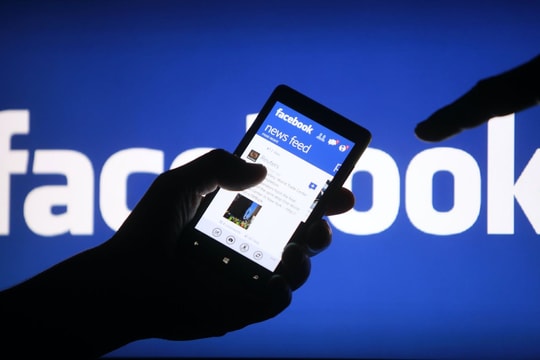How do tech giants share user data with law enforcement?
In fact, technology giants around the world such as Apple, TikTok, Google and Facebook are willing to share user information with law enforcement agencies when requested, with an approval rate of up to 70-80%.
In the digital age, social media has become an indispensable part of our lives. However, behind the convenience and connectivity, a worrying issue is being raised: how are social media platforms sharing user data with law enforcement agencies?

The arrest of Telegram CEO Pavel Durov has raised serious questions about the security of user data. Will the “impregnable fortress” that Pavel Durov once built collapse under pressure from law enforcement? This question is making millions of users worry about their privacy and raising big questions about the future of this platform.
Telegram, disguised as a secure messaging app, is increasingly becoming a gateway to the online underworld. The platform’s ease of access and high security have made it a powerful tool for those who want to avoid legal pursuit. Without having to understand complex technology or search the dark corners of the network, anyone can access dark services right on Telegram, turning a normal messaging app into a tool for illegal activities.
The story of Pavel Durov and Telegram has revealed a surprising truth. Despite being advertised as an extremely secure messaging app, Telegram does not encrypt all conversations by default. This means that illegal activities on the platform can be fully monitored by the authorities.
Despite promoting itself as a safe haven for privacy-conscious users, Telegram has once “betrayed” the trust of its users by handing over data to German authorities. The incident raises the question: Are there other similar cases that we don’t know about?
Despite always affirming that user privacy is a top priority, technology giants such as Apple, Google, TikTok and Meta often "betray" when faced with data requests from authorities. Statistics show that on average 70-80% of these requests are approved, exposing the harsh truth about the level of data protection we are receiving.

Facebook, Mark Zuckerberg’s multi-billion dollar social media empire, has received and approved a huge number of requests for user data from law enforcement. In the first half of 2023 alone, Facebook received nearly 270,000 requests and agreed to disclose personal information to nearly 77% of them.
Meanwhile, Google, the global search giant, is no exception to this rule. According to its transparency report, in May 2023, up to 81% of requests from law enforcement agencies were approved by Google, resulting in the disclosure of part or all of the relevant user information.
Similarly, Apple, a technology brand known for its commitment to protecting privacy, is no exception to this trend. In the first half of 2023, the “Apple” received nearly 18,000 data requests from authorities and approved 83% of these requests.
Surprisingly, even TikTok, a platform popular with young people, is not exempt from the rule of sharing user data with law enforcement. In 2023, TikTok received more than 10,000 data requests, showing that the exploitation of personal information on this social network is frequent and large-scale.
Imagine that TikTok receives dozens of requests for users' personal information from authorities every day. These requests include urgent cases, showing the seriousness of the problem.
TikTok's transparency report shows a stark difference in the level of user data disclosure across countries. In the US, 71% of users' personal information was shared, compared to 68% in the UK and 57% in Australia. This suggests that the level of data protection on TikTok can vary significantly depending on the user's country.
This shows that law enforcement agencies can easily access users' personal data on social media platforms. The transfer of information is regular and does not seem to encounter any significant obstacles.
According to The New York Times, law enforcement can request almost any type of personal data from us, from basic information like name, address, phone number to more detailed data about online activity like emails, text messages, call history, even personal photos and videos.
Even more worrying, in many cases we don’t even know when our personal data has been shared with law enforcement. Tech companies are often bound by non-disclosure agreements, leaving us waiting months or even years to find out.
Tech giants are notoriously tight-lipped about sharing user data with law enforcement. Instead of providing specifics, they often offer vague answers like “some” information has been shared, making it difficult for users to understand the extent of the breach.
Therefore, users should be careful with all their actions on social networks. Because if you accidentally or intentionally violate the law, technology companies such as Apple, Google, TikTok and Meta can provide law enforcement agencies with a large amount of personal information about you.




